
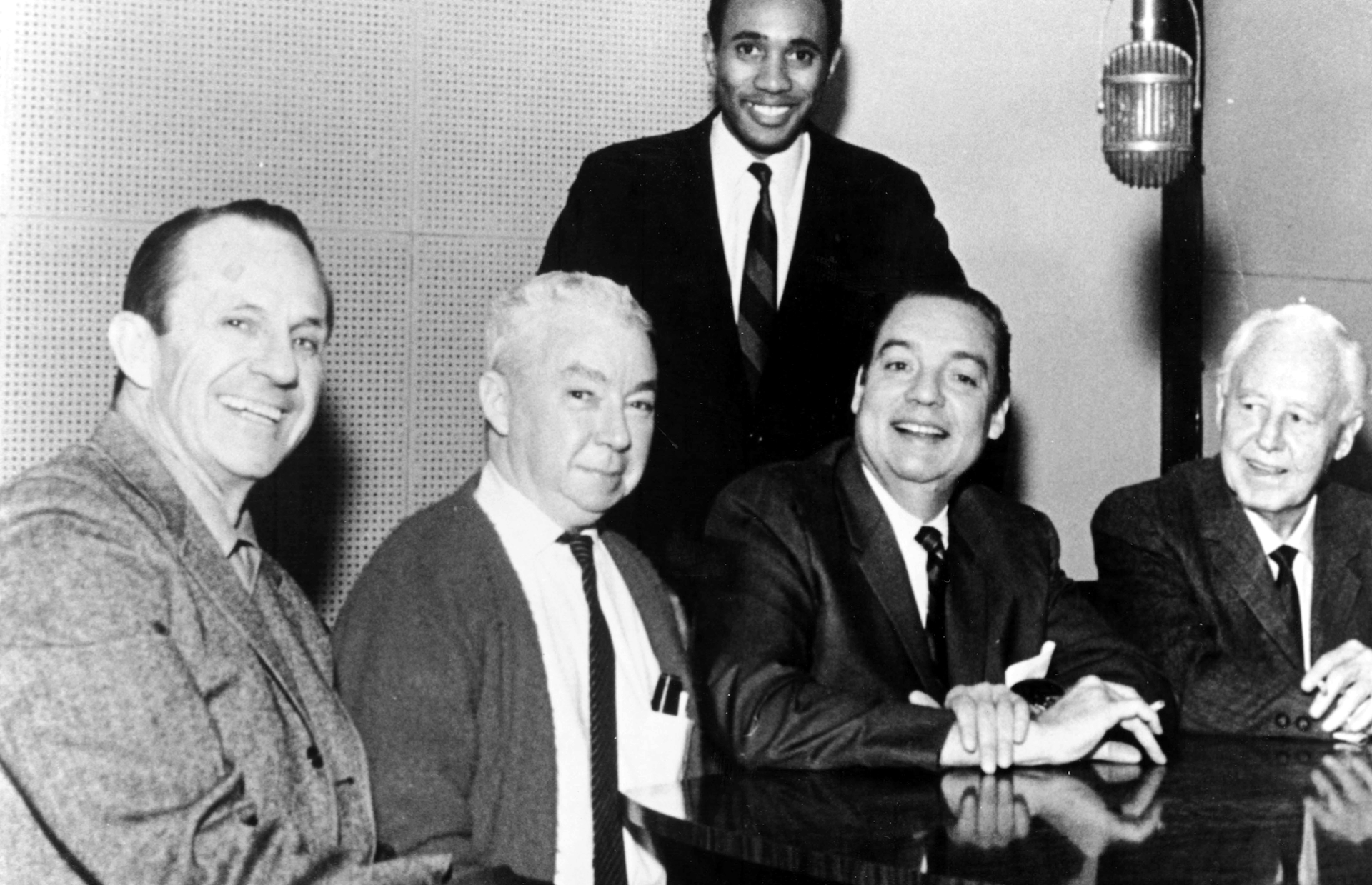

Chapter 3
Hey John R!
Nashville's R&B Radio
The WLAC jocks, 1968. Seated, from left: John “John R” Richbourg, Gene Nobles, Bill “Hoss” Allen, and Herman Grizzard. Standing: Don Whitehead, the radio station’s first Black full-time announcer. Courtesy of the family of Hoss Allen.
“Would you play some of our music?” With those words in 1946, several Black college students are said to have handed WLAC-Nashville disc jockey Gene Nobles, who was white, a stack of R&B and jazz records to play. From that night forward, WLAC’s 50,000-watt clear signal bounced across the stratosphere as the most powerful force in R&B broadcasting in America, just as Nashville began to assert itself as a major recording center, not only for country music but also for R&B on Excello Records and other labels heard on WLAC. With the 1951 addition of WSOK, a full-time Black programming station, mid-twentieth century Nashville rocked on wax and wavelength to a beat that would literally change the world.
"WLAC was all we ever listened to."
- James Brown
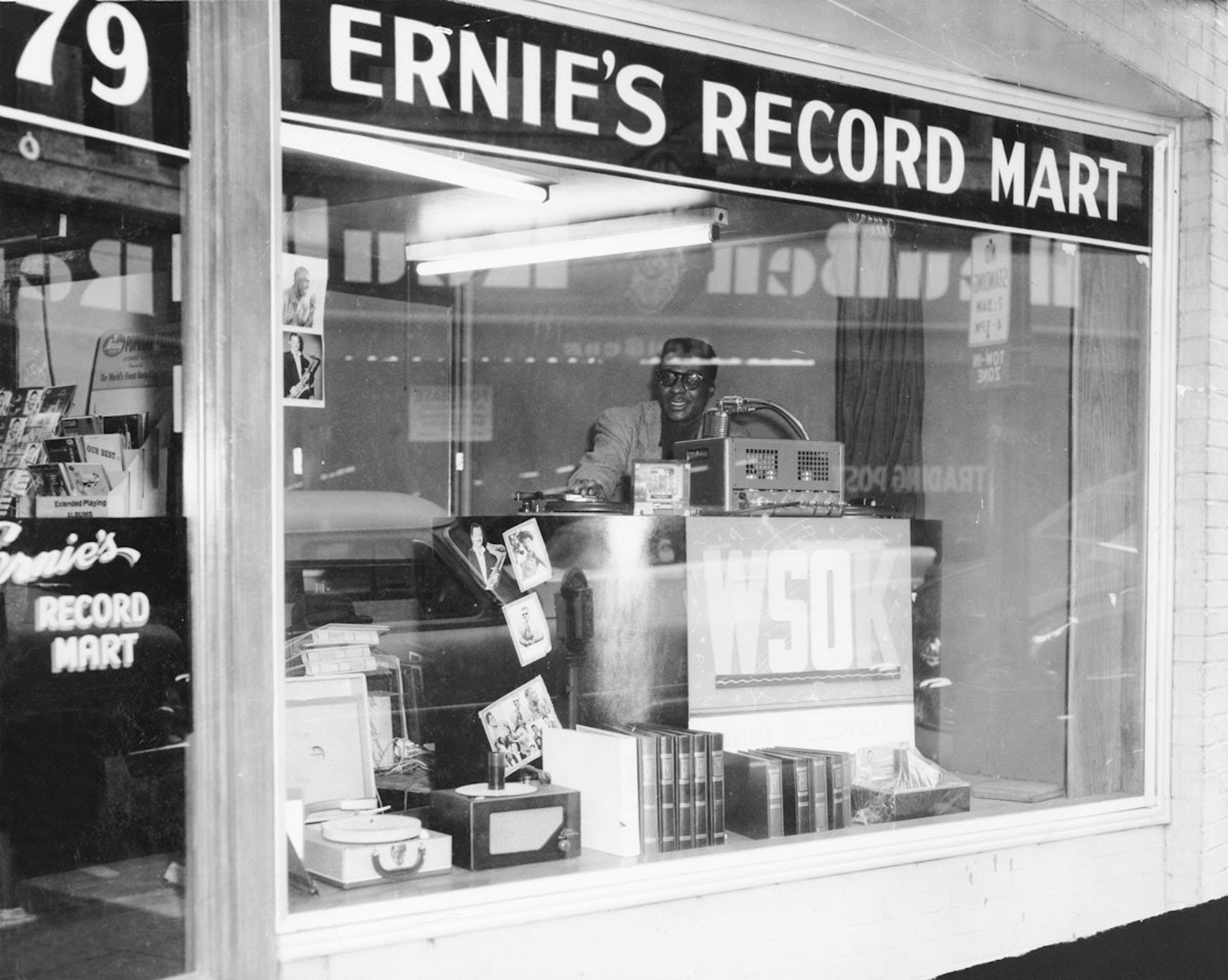
Ernie's Record Mart. Located in downtown Nashville, Ernie's Record Mart sold mail-order R&B records to listeners of Ernie's Record Parade, hosted by disc jockey John "John R" Richbourg on WLAC. Ernie's record orders are said to have reached a thousand per day by the 1960s. In this photo, disc jockey Morgan Babb—the lead voice in the gospel group the Radio Four and program director at WSOK/WVOL—broadcasts under his R&B moniker, “Happy Jack,” from Ernie’s Record Mart. Courtesy of Dr. Morgan Babb.
WLAC COMMERCIALS
During the golden era of WLAC’s R&B programming, the jocks built a memorable catalog of product pitches, including White Rose Petroleum Jelly, Royal Crown Hairdressing, and the infamous WLAC baby chicks. At left is a 45-rpm recording of the wildly popular White Rose Petroleum Jelly jingle, sung by Earl Gaines and, uncredited, Gene Allison. Courtesy of Dan Sherry.
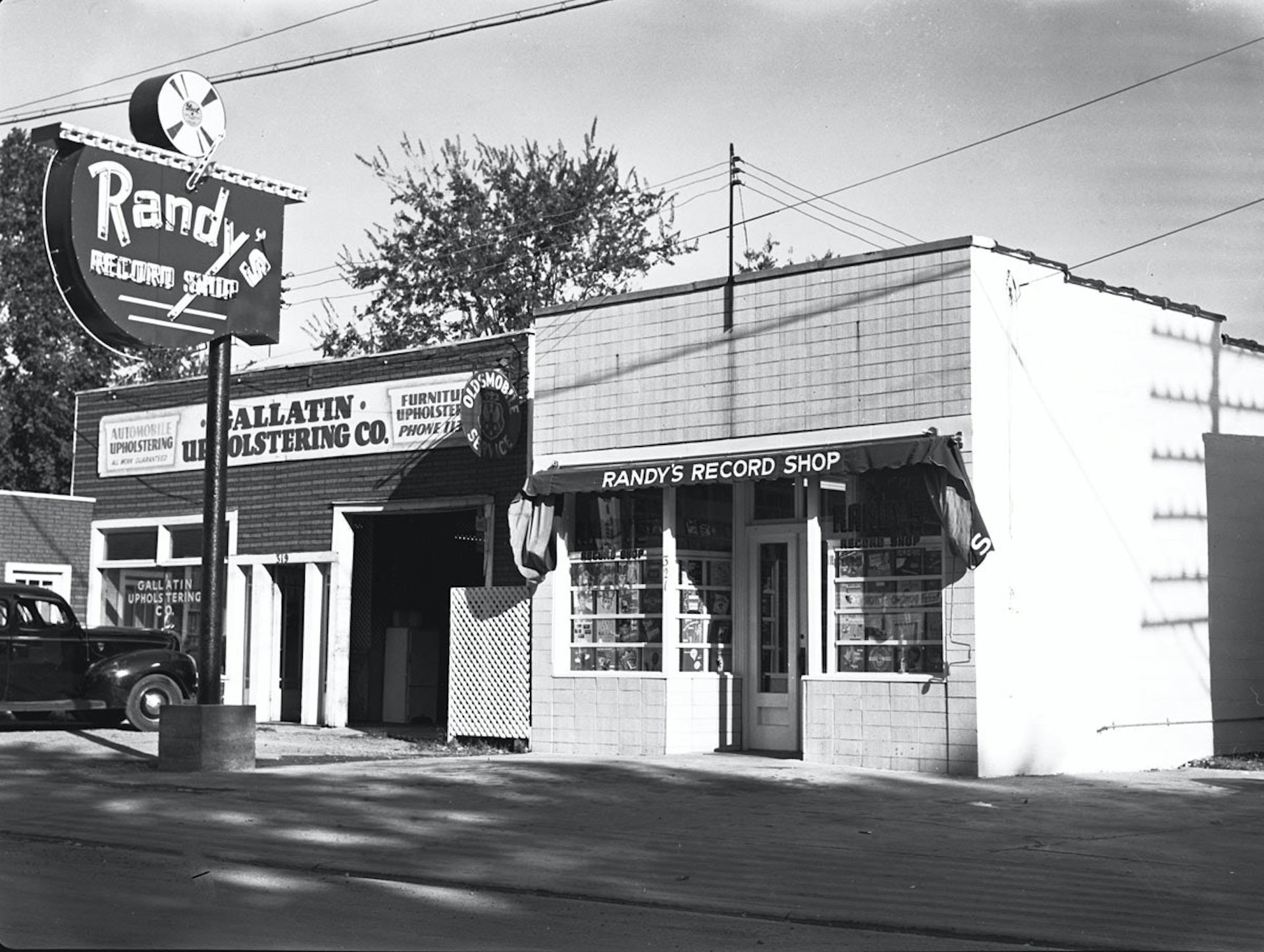
Randy's Record Shop, c. 1952. Courtesy of the Sumner County Museum/Allen Haynes Collection.
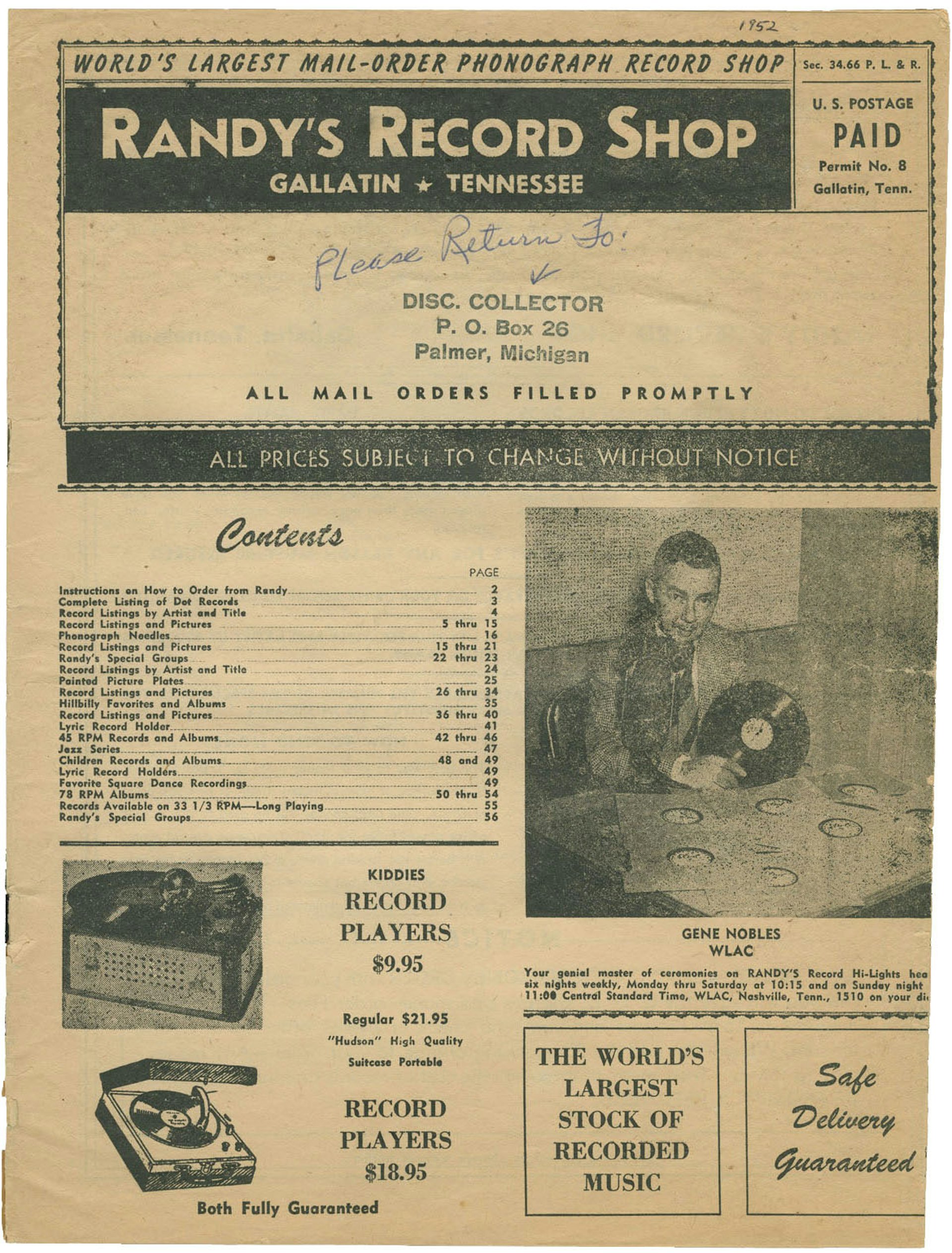
WSOK
In December 1951, WSOK debuted in Nashville as one of the nation’s first full-time all-Black stations. Though white-owned, WSOK featured a staff of Black announcers and Black-oriented programs with names such as Cook’s Blues, Cool Rhythms, and Peace in the Valley.
A WSOK promotional cigarette lighter, early 1950s. Courtesy of Cal Young.
A WSOK promotional cigarette lighter, early 1950s. Courtesy of Cal Young.
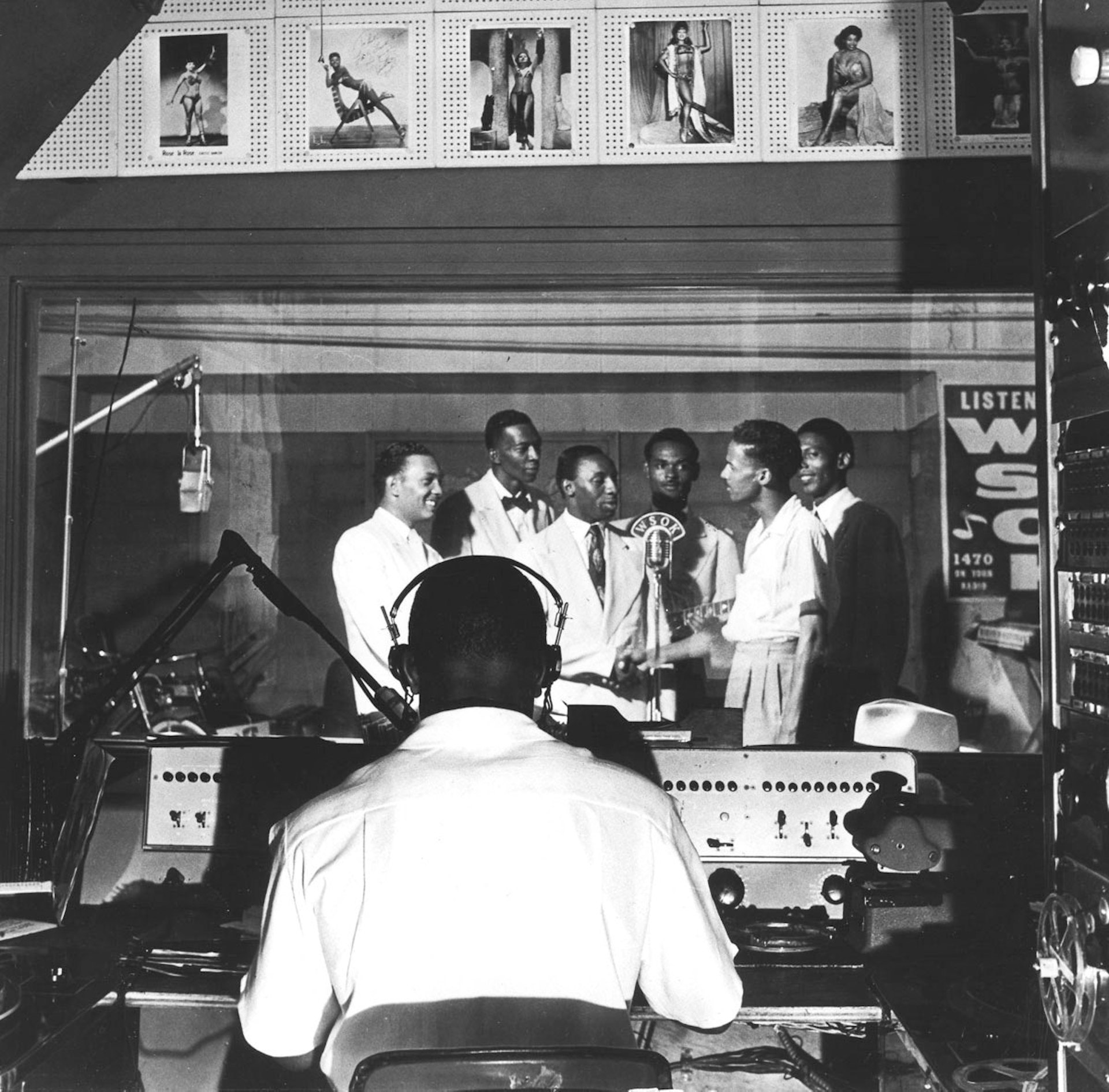
The Prisonaires on Radio WSOK in 1953, with lead tenor Johnny Bragg left of the microphone. Courtesy of Showtime Archives and Colin Escott.
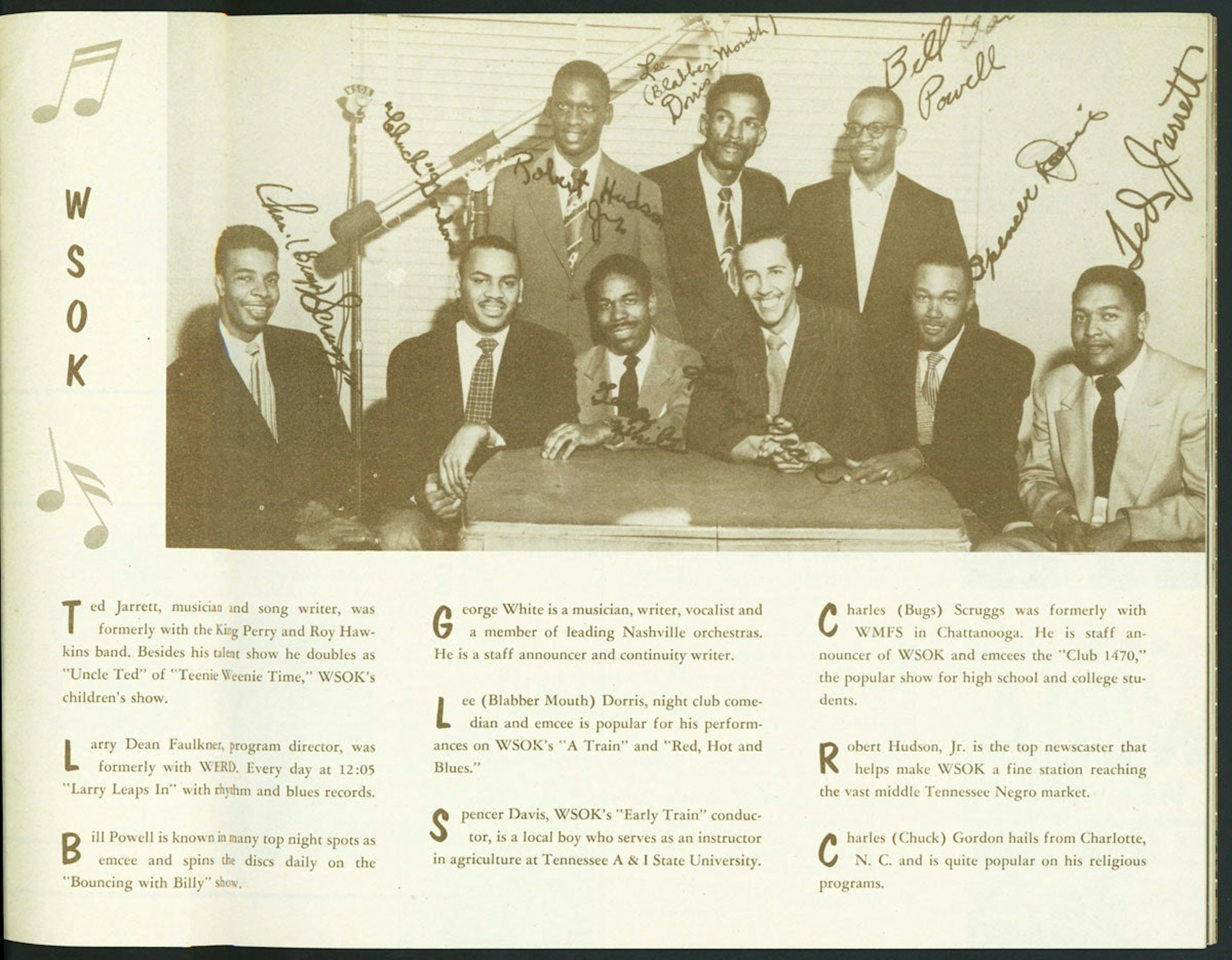
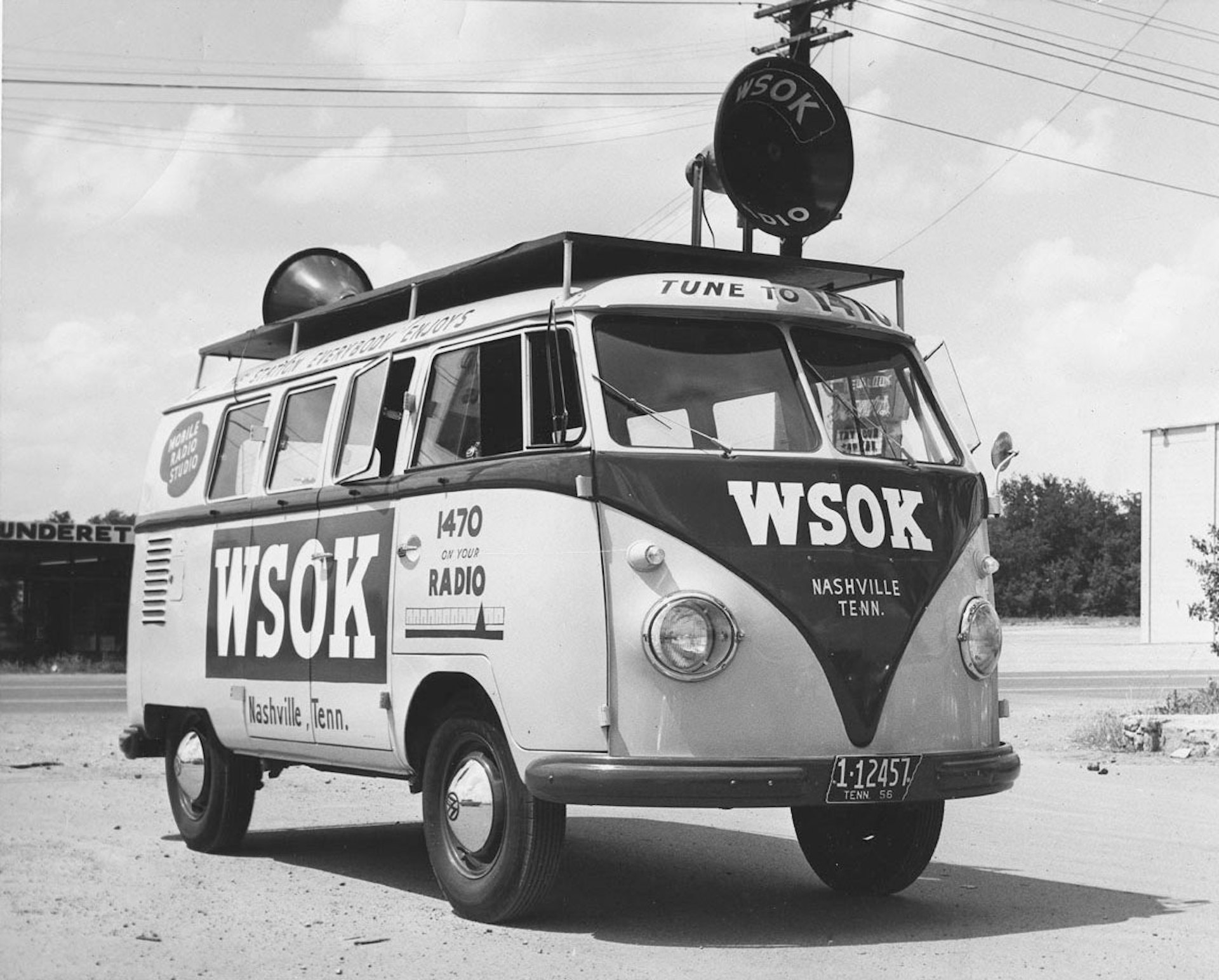
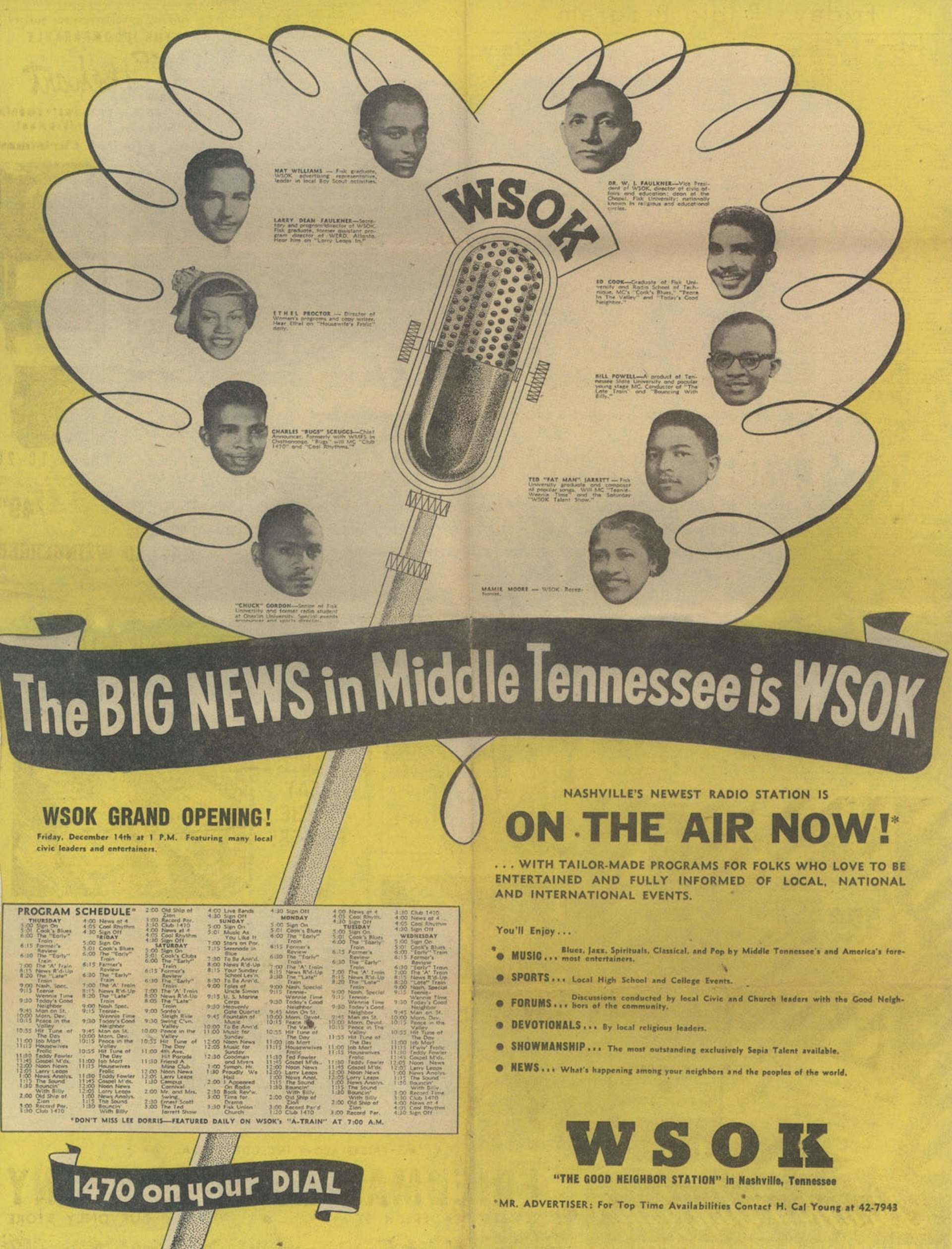
A Tennessean advertisement from the day of WSOK’s on-air debut, December 14, 1951. Courtesy of Cal Young.
WVOL
In 1956, WSOK founder Cal Young sold the station, and its call letters changed to WVOL. The station retained its all-Black format and its community focus, however, with on-air staff routinely helping to raise emergency funds for listeners in need.
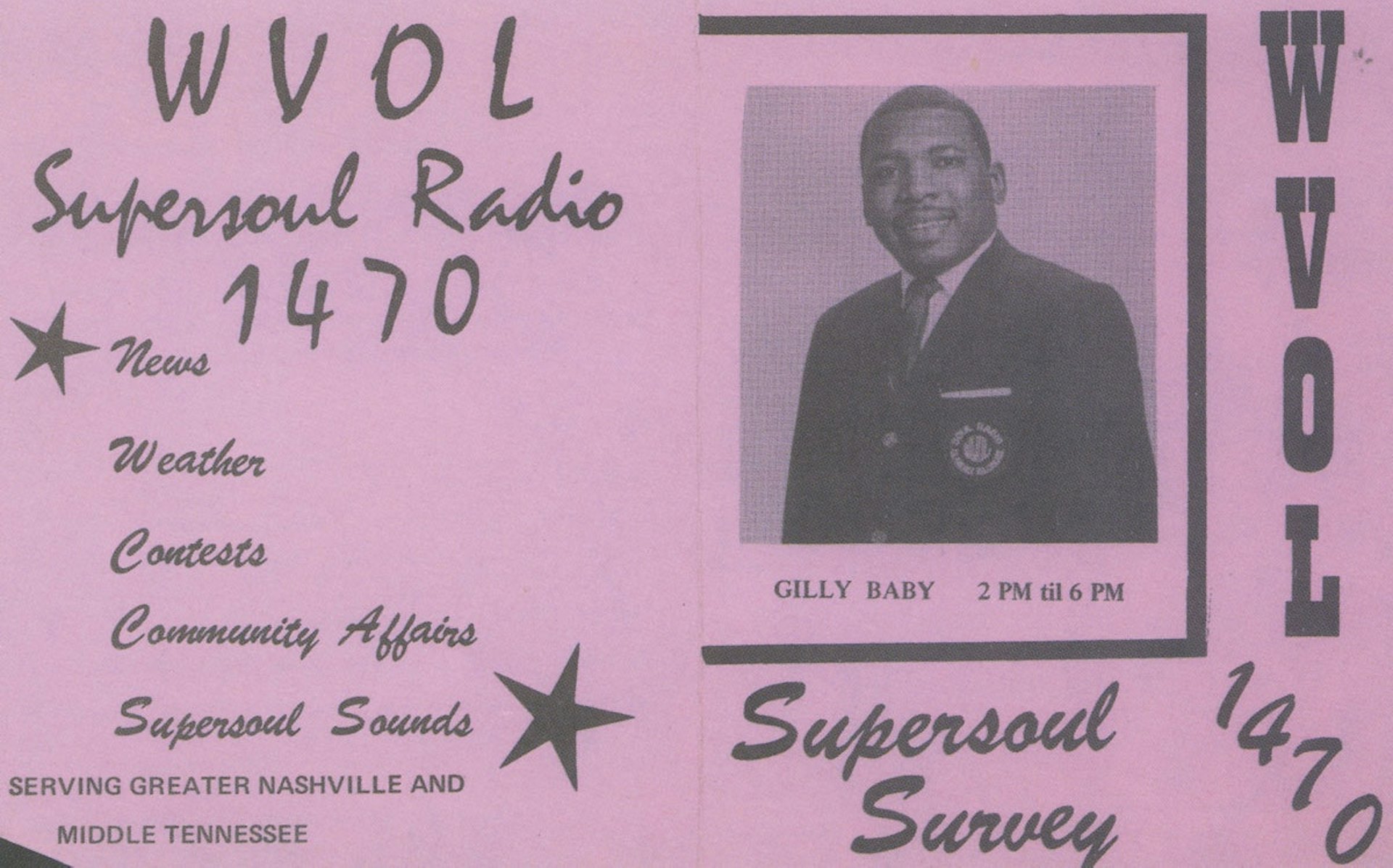
At right: WVOL station survey featuring disc jockey Gilly Baby (Clarence Kilcrease). Courtesy of Chucki Burke.
"We buried a lot of people, and clothed a lot of people, and housed a lot of people, and fed a lot of people, and after that then the general market began to pick up and follow."
- Dr. Morgan Babb, former WSOK/WVOL program director

Spin the Record



